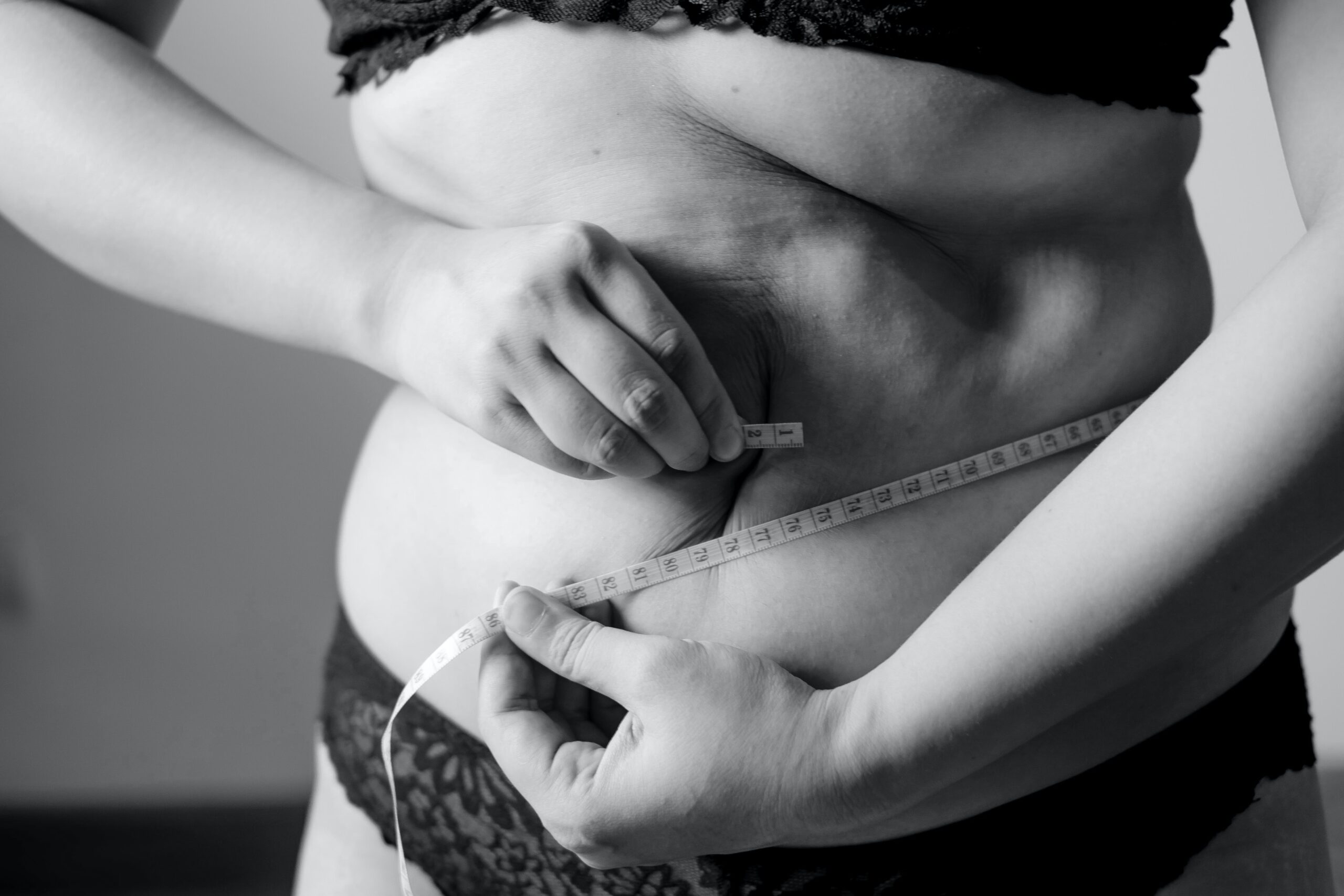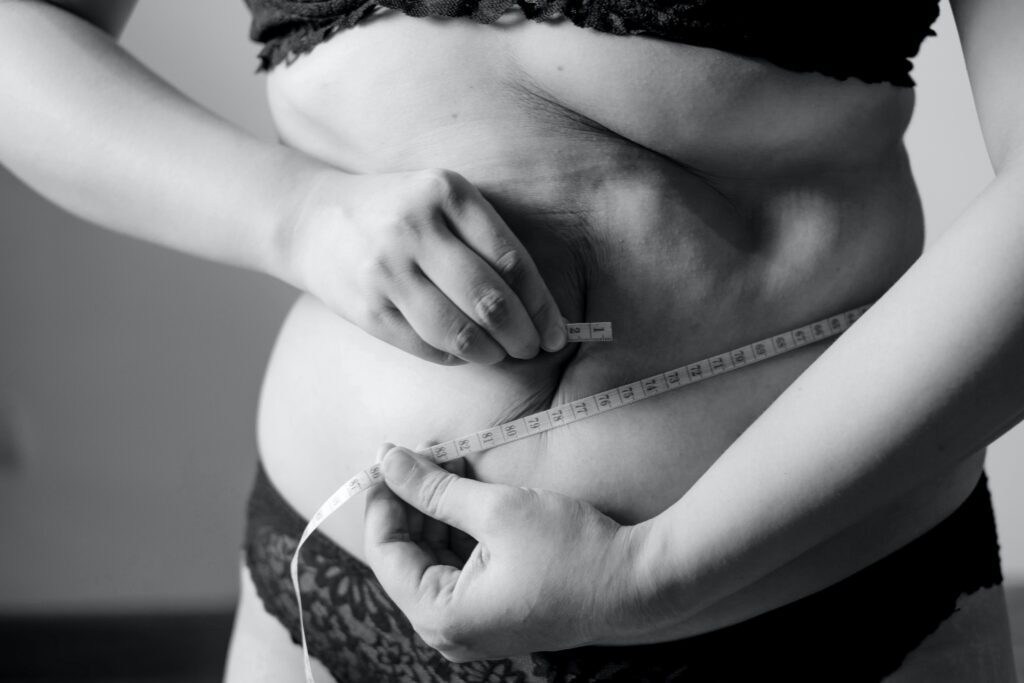

Hormones are the silent conductors of our bodies, directing countless aspects of our health, from our energy levels to how we metabolize food. As intricate as they are, they require a delicate balance to function correctly.
An imbalance in these critical messengers, not only testosterone and estrogen, can lead to a cascade of health issues, with weight gain being one of the most common and visible signs. Whether it’s an underactive thyroid or an excess of cortisol (the stress hormone) these imbalances can slow down metabolism, increase appetite, and lead to an accumulation of fat, particularly around the midsection.
Hormonal Regulation of Appetite and Metabolism
The Dynamic Duo: Hunger Hormones Leptin and Ghrelin
Leptin and ghrelin are key players in the regulation of appetite. Leptin is produced by fat cells and helps to signal satiation, telling our brains that we have enough energy stored. Ghrelin, on the other hand, is known as the “hunger hormone” because it increases appetite when the stomach is empty. When these hormones are out of balance, it can lead to an incessant feeling of hunger or a lack of satisfaction after eating, which often results in overeating.
Metabolic Hormones: Insulin and Thyroid
Insulin is a hormone produced by the pancreas that allows our bodies to use sugar from carbohydrates for energy or to store it for future use. Insulin sensitivity can dictate how effectively this process occurs. Thyroid hormones, produced by the thyroid gland, regulate our metabolism. Disruptions in these hormones can lead to metabolic slowdown, causing the body to store more fat than it burns.
Specific Hormones and Weight Gain
Thyroid Hormones: Regulators of Metabolic Pace
Thyroid hormones, particularly thyroxine (T4) and triiodothyronine (T3), set the pace of our metabolism. Hypothyroidism, a condition where the thyroid does not produce enough hormones, can lead to a sluggish metabolism and weight gain. On the flip side, hyperthyroidism can cause weight loss and an overactive metabolism.
The Sex Hormone Equation: Estrogen and Testosterone
In women, estrogen levels fluctuate throughout life, particularly during menopause, leading to potential weight gain. In men, low levels of testosterone can decrease muscle mass and increase body fat. The balance of these sex hormones is crucial for maintaining a healthy body weight.
Cortisol: The Stress Hormone’s Impact on Weight
Cortisol, the body’s primary stress hormone, can lead to weight gain when it’s consistently high, often as a result of chronic stress. It can increase appetite and cravings for unhealthy foods and is linked to the accumulation of belly fat.
Hormonal Imbalance in Different Life Stages
Puberty to Pregnancy: Hormonal Shifts in the Early Years
The onset of puberty brings about a surge of hormones that can affect a young person’s weight. For women, pregnancy and the postpartum period are times of significant hormonal changes that can contribute to weight gain.
Midlife Changes: Andropause and Menopause
As individuals age, men experience a gradual decline in testosterone, while women go through menopause, which includes a decrease in estrogen. These changes can lead to increased fat accumulation, especially around the abdomen, and can be challenging to manage.
Factors Contributing to Hormonal Imbalance and Weight Gain
Beyond Genetics: Environmental and Lifestyle Factors
While genetics play a role in how hormones affect our weight, environmental factors like stress, lack of sleep, and exposure to endocrine-disrupting chemicals in plastics and pesticides can also lead to imbalances. Lifestyle choices, such as diet and exercise, have a profound effect on hormonal health.
The Role of Diet and Physical Activity
A diet high in processed foods and sugar can lead to insulin resistance, a precursor to diabetes and weight gain. Regular physical activity helps maintain insulin sensitivity and supports the balance of other weight-related hormones. This doesn’t necessarily mean you need to be lifting heavy weights or taking a spin class every day. Going for a walk is a great way to move your body healthily.
Diagnosing Hormone Imbalances
Medical Tests and Biomarkers
To unravel the complexities of hormonal imbalances, healthcare professionals turn to sophisticated medical tests. Blood tests to measure levels of thyroid, estrogen, testosterone, cortisol, insulin, and other hormones are crucial in painting a picture of a person’s hormonal landscape. For instance, a thyroid-stimulating hormone (TSH) test can indicate hypothyroidism, while a fasting insulin test might suggest insulin resistance.
These biomarkers, combined with a patient’s physical symptoms and medical history, guide doctors in diagnosing conditions like hypothyroidism or polycystic ovary syndrome (PCOS), each having a distinct impact on body weight and metabolism. Saliva and urine tests are also gaining traction as tools to measure hormone fluctuations over time, providing a more dynamic view of an individual’s hormonal status.
Recognizing Signs and Symptoms
The human body has its language, with symptoms acting as words, sometimes whispering, other times shouting, to signal imbalance. Beyond unexplained weight gain, a range of symptoms can herald a hormone imbalance: persistent fatigue that isn’t alleviated by rest, mood swings that can feel like an emotional rollercoaster, and in women, menstrual irregularities or exacerbation of premenstrual symptoms can all be significant.
Men might experience a decrease in libido, erectile dysfunction, or changes in body composition, such as decreased muscle mass and increased body fat. These signs are the body’s way of signaling that the delicate hormonal balance has been disturbed and merits a closer examination.
Strategies for Managing Weight Gain Due to Hormonal Imbalance
Lifestyle and Dietary Considerations
Diet and lifestyle are the bedrock upon which hormonal balance is built. Processed foods high in sugar and unhealthy fats can wreak havoc on insulin levels and inflammation, exacerbating hormonal imbalances. Conversely, a diet abundant in whole foods like vegetables, fruits, lean proteins, and healthy fats can support endocrine function. Balancing macronutrients helps stabilize blood sugar levels and can mitigate surges in insulin and cortisol.
Regular physical activity, particularly strength training and cardio, can improve hormone sensitivity and boost metabolism. Quality sleep is also a pillar of hormonal health; poor sleep can disrupt the delicate balance of growth hormone, cortisol, and insulin. Stress management through mindfulness, yoga, or other relaxation techniques can lower cortisol levels, thus reducing the risk of stress-related weight gain.
Medical Interventions and Therapies
When lifestyle modifications are not enough to restore balance, medical interventions may come into play. Medications like metformin for insulin resistance or levothyroxine for hypothyroidism can be life-changing. Hormone replacement therapy, carefully calibrated, can alleviate symptoms of menopause and andropause. Bioidentical hormones, which are chemically identical to those the body produces, are an emerging area in hormone therapy, offering a personalized approach. However, all these interventions require a judicious approach, considering potential side effects and long-term implications, under the watchful eye of a healthcare professional.
